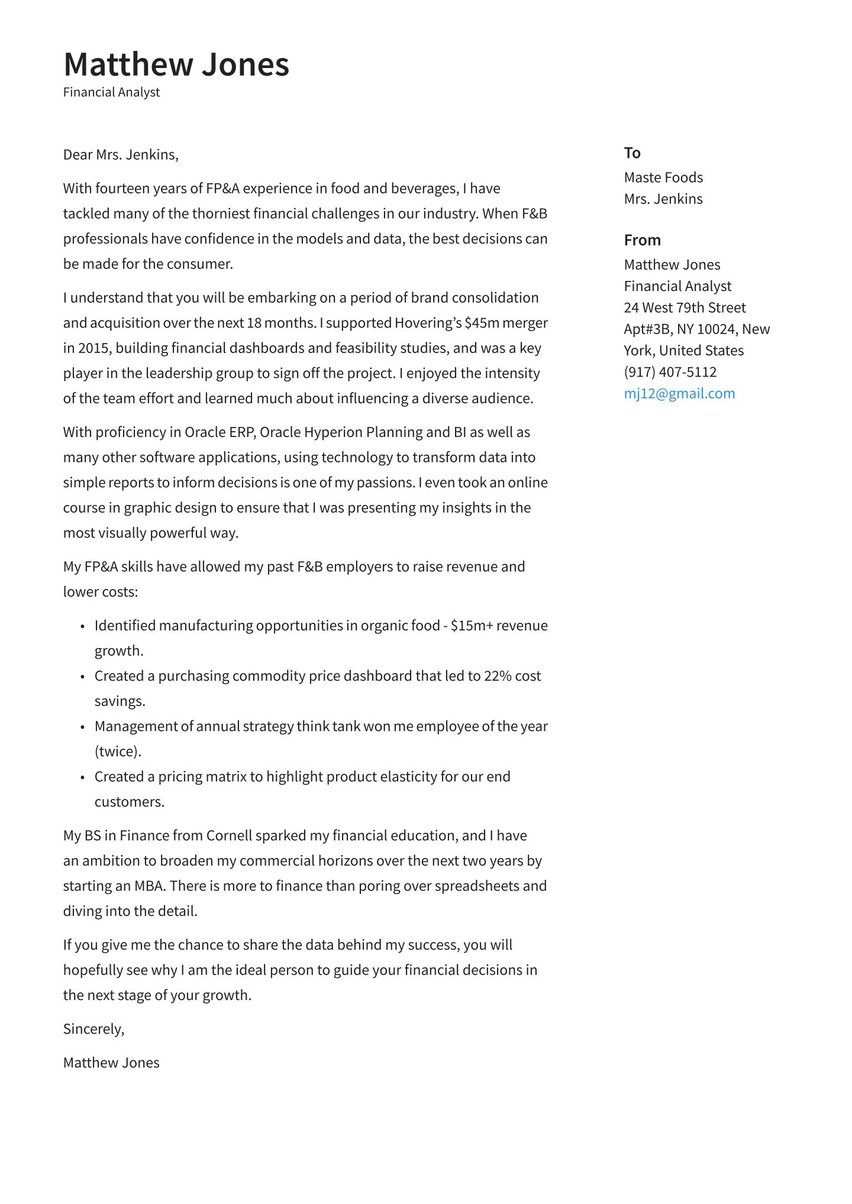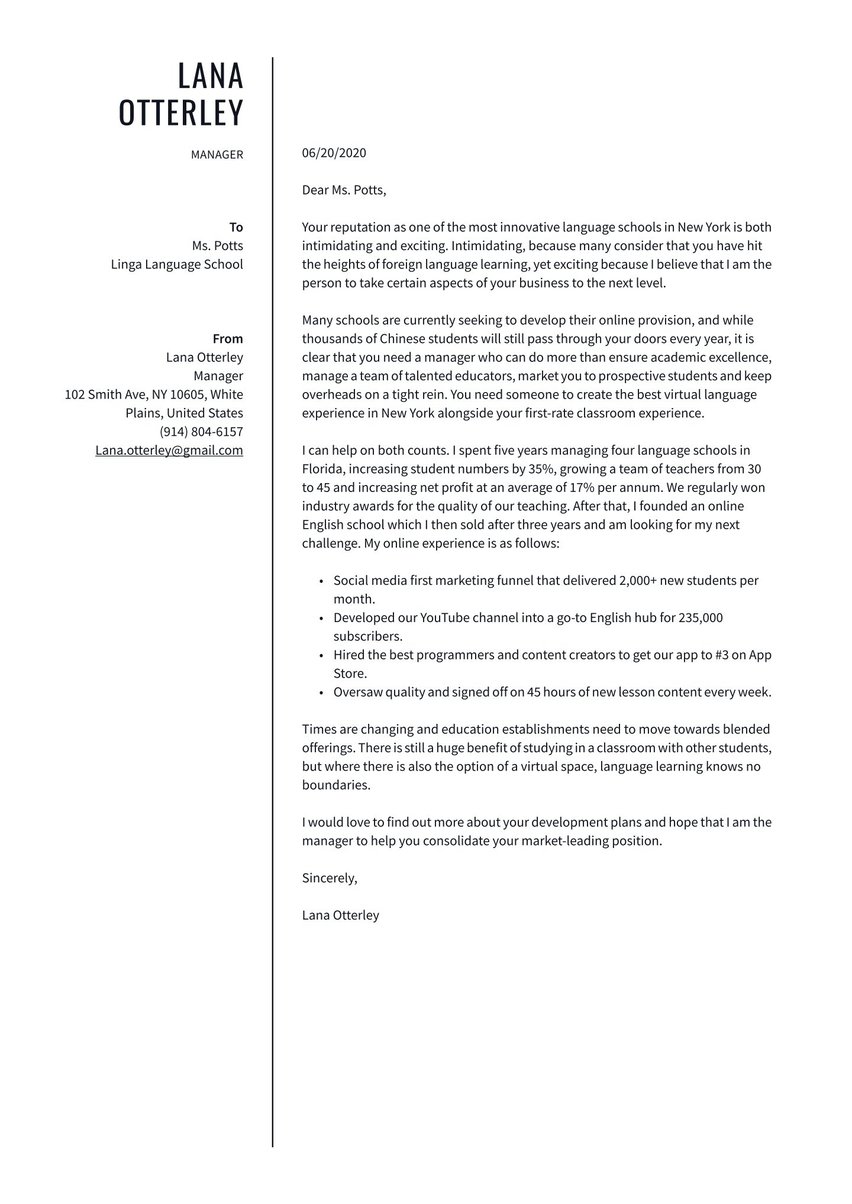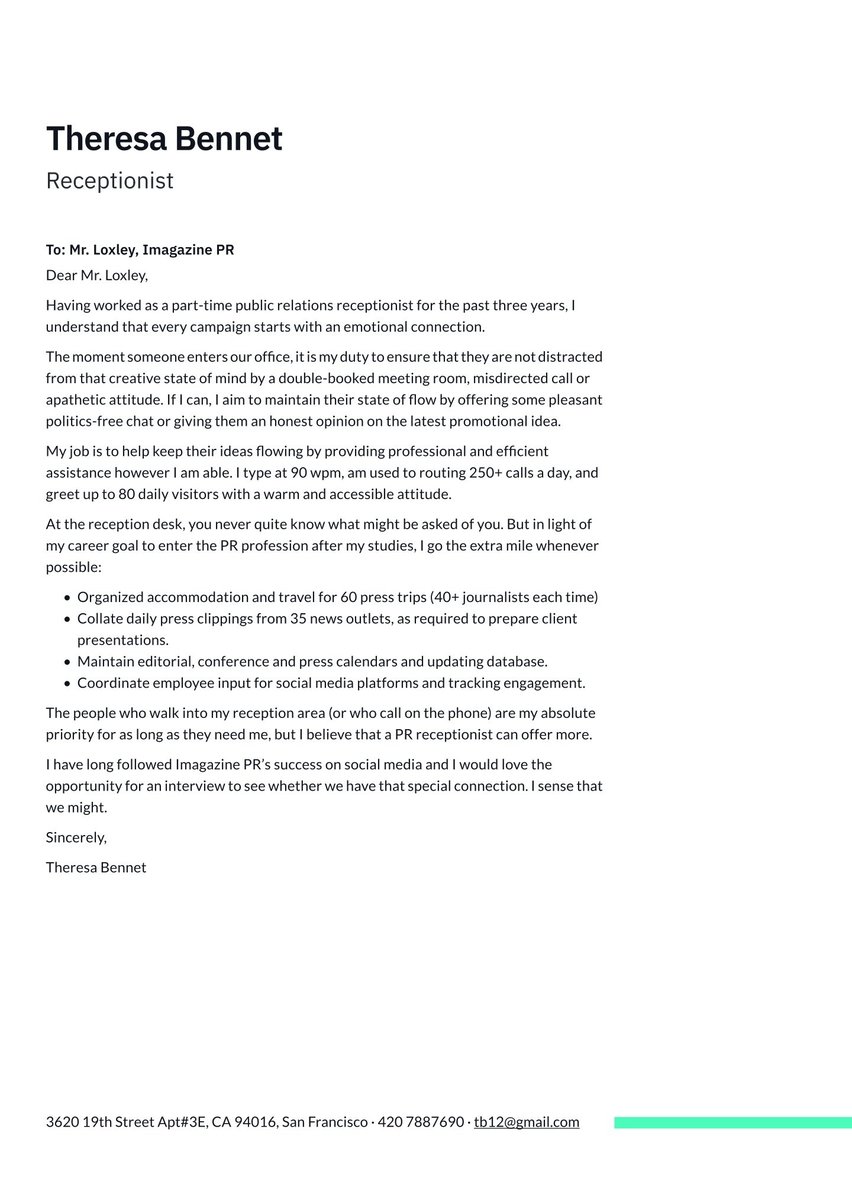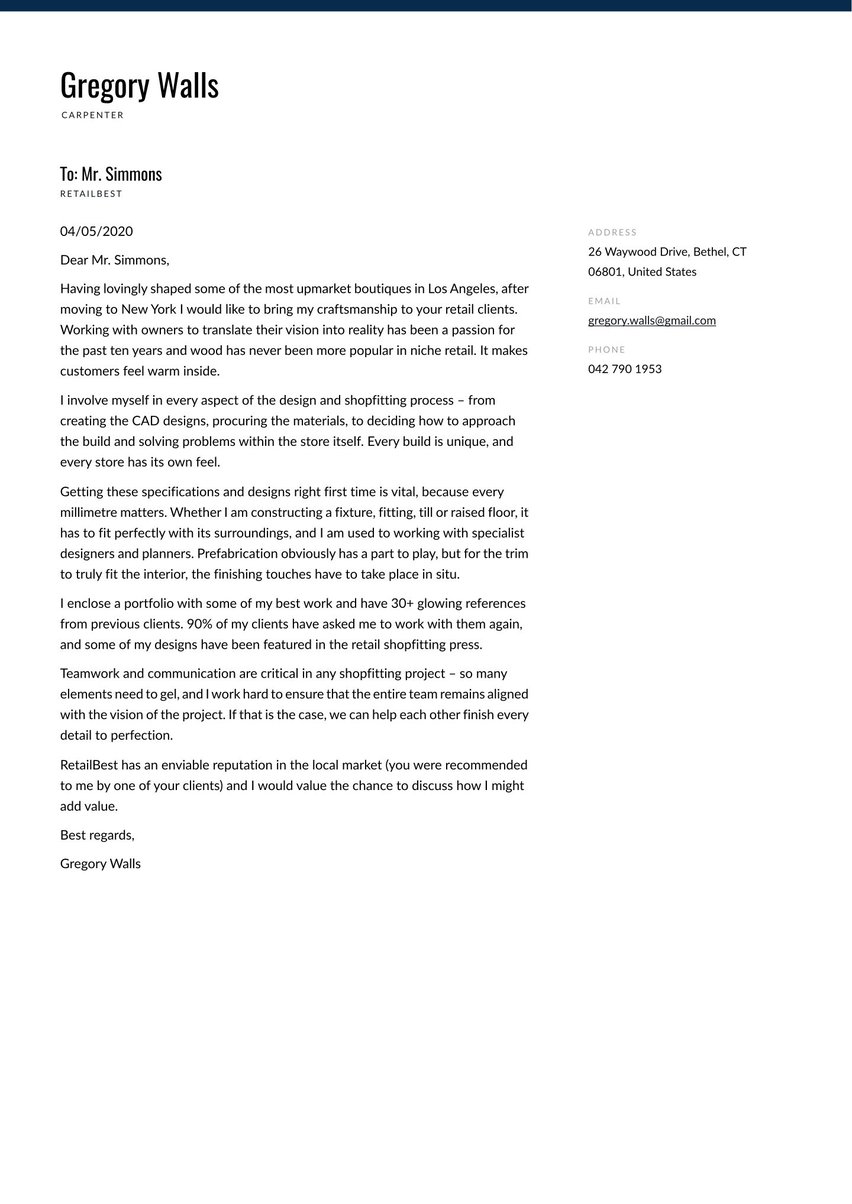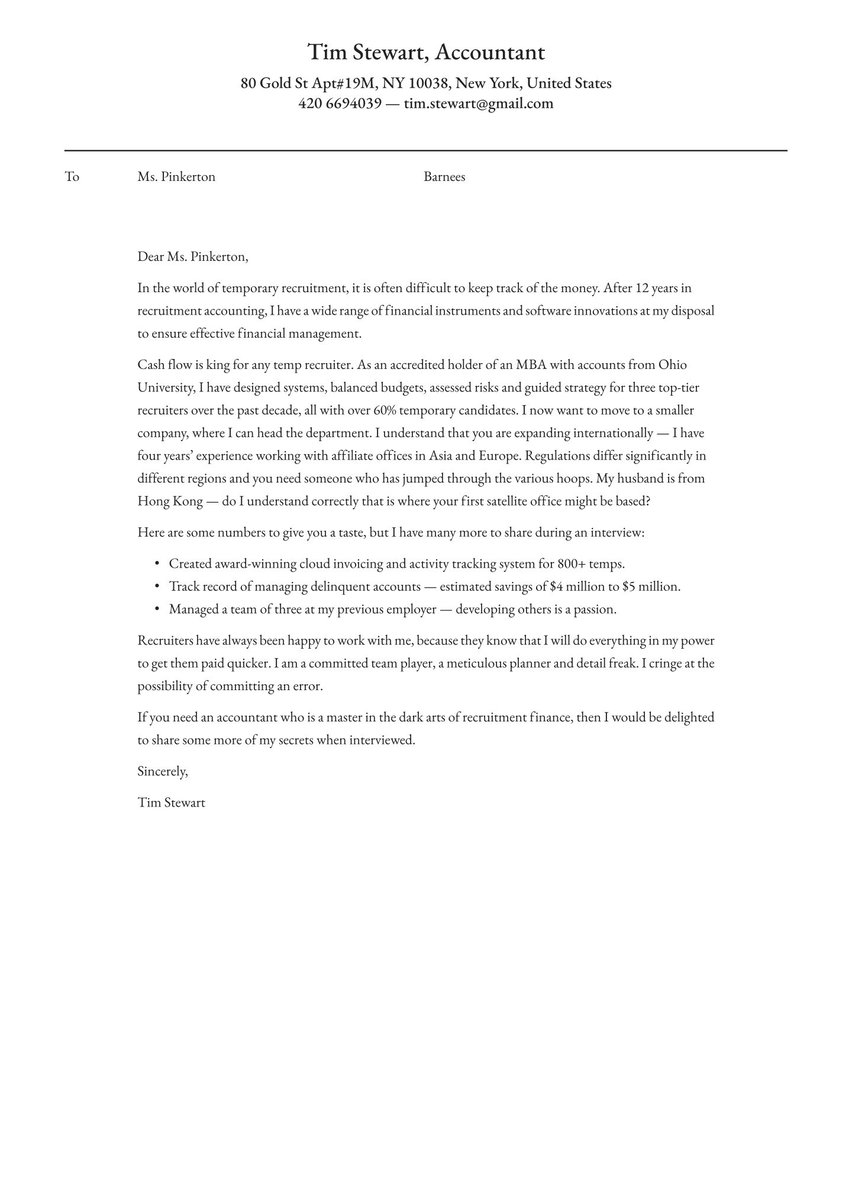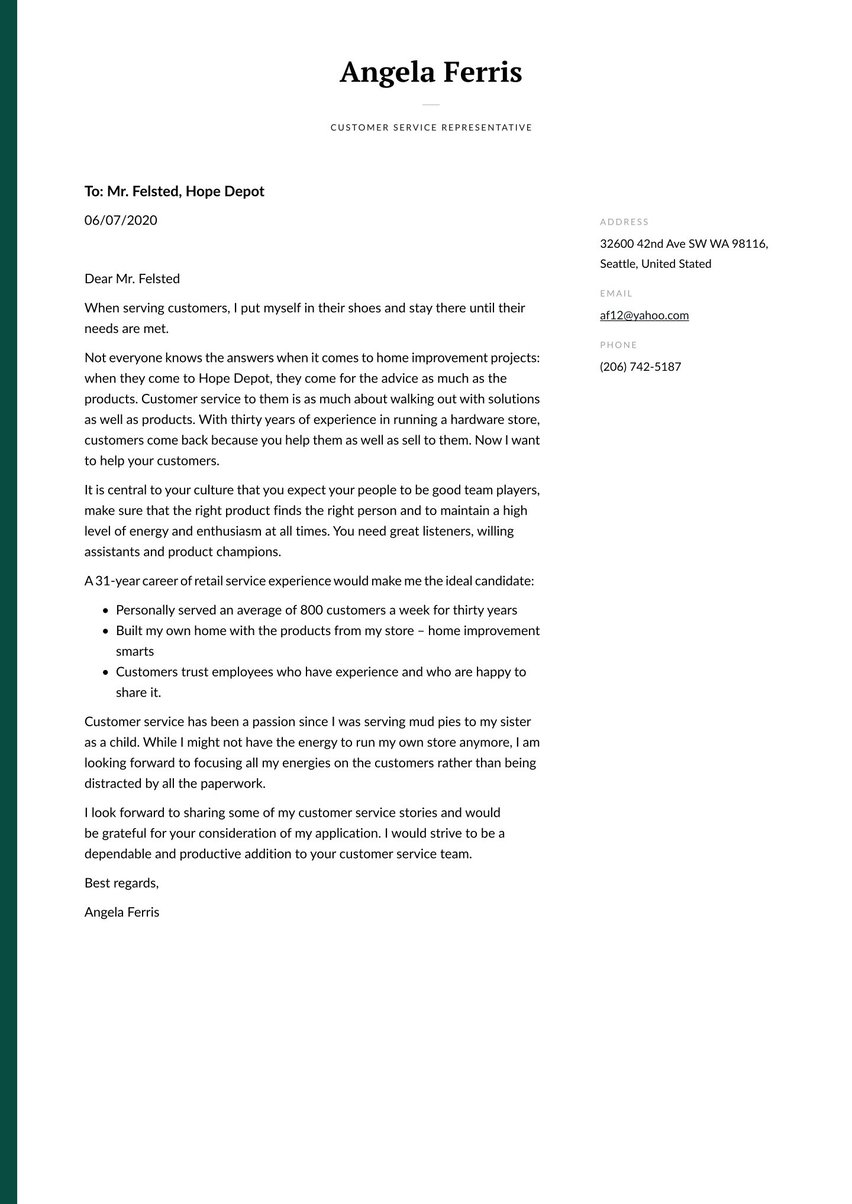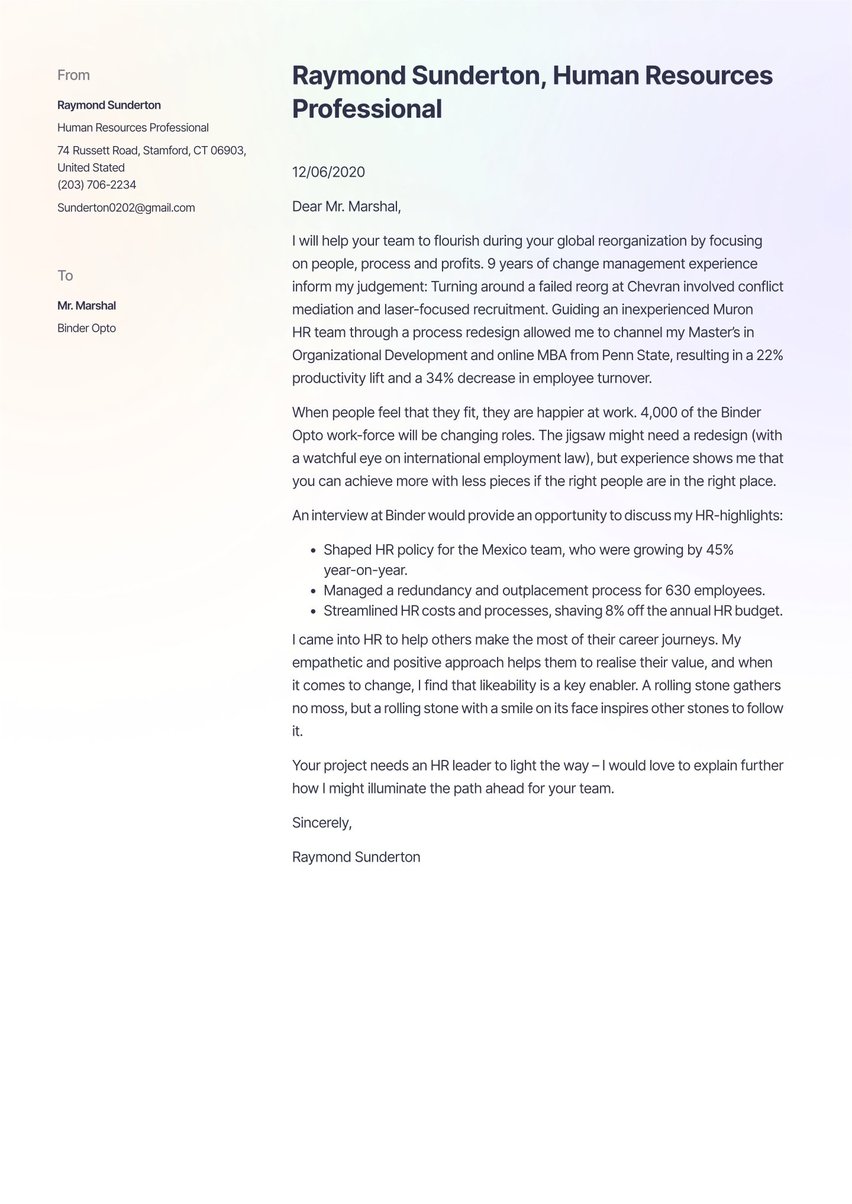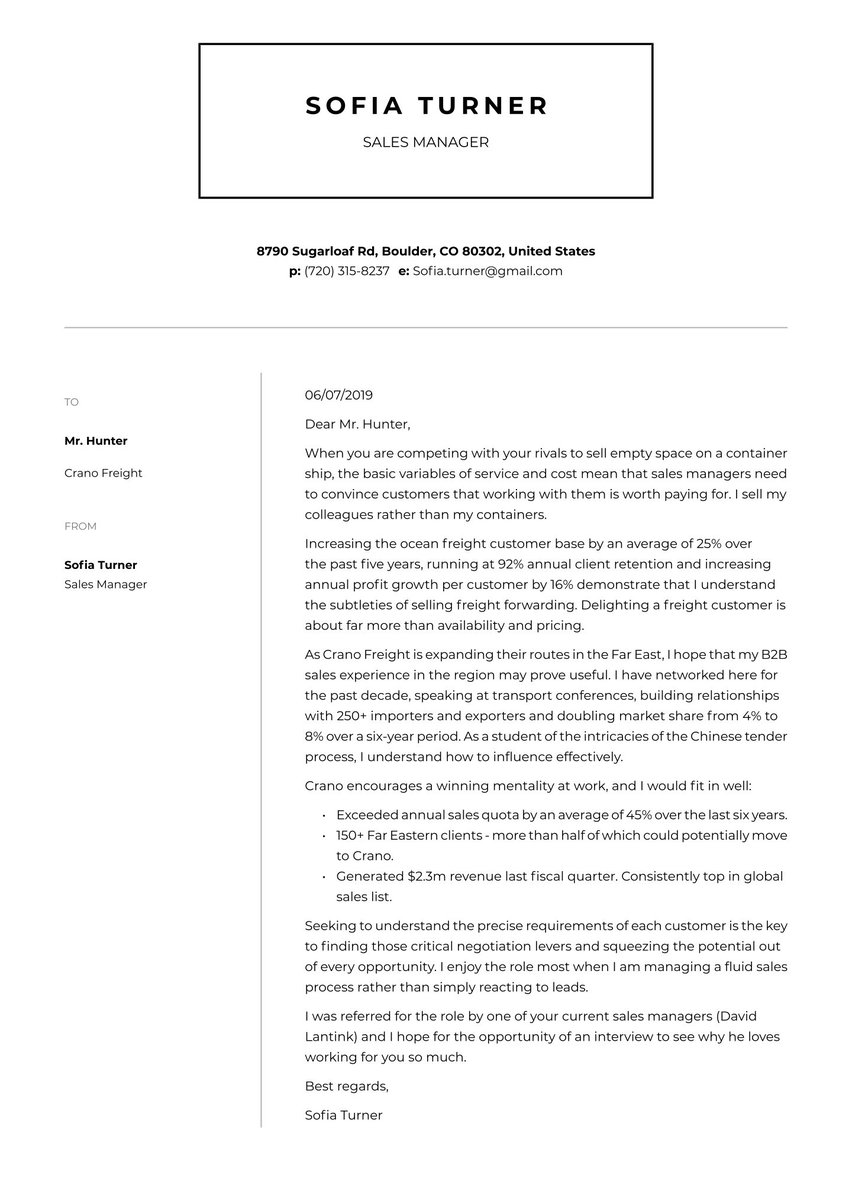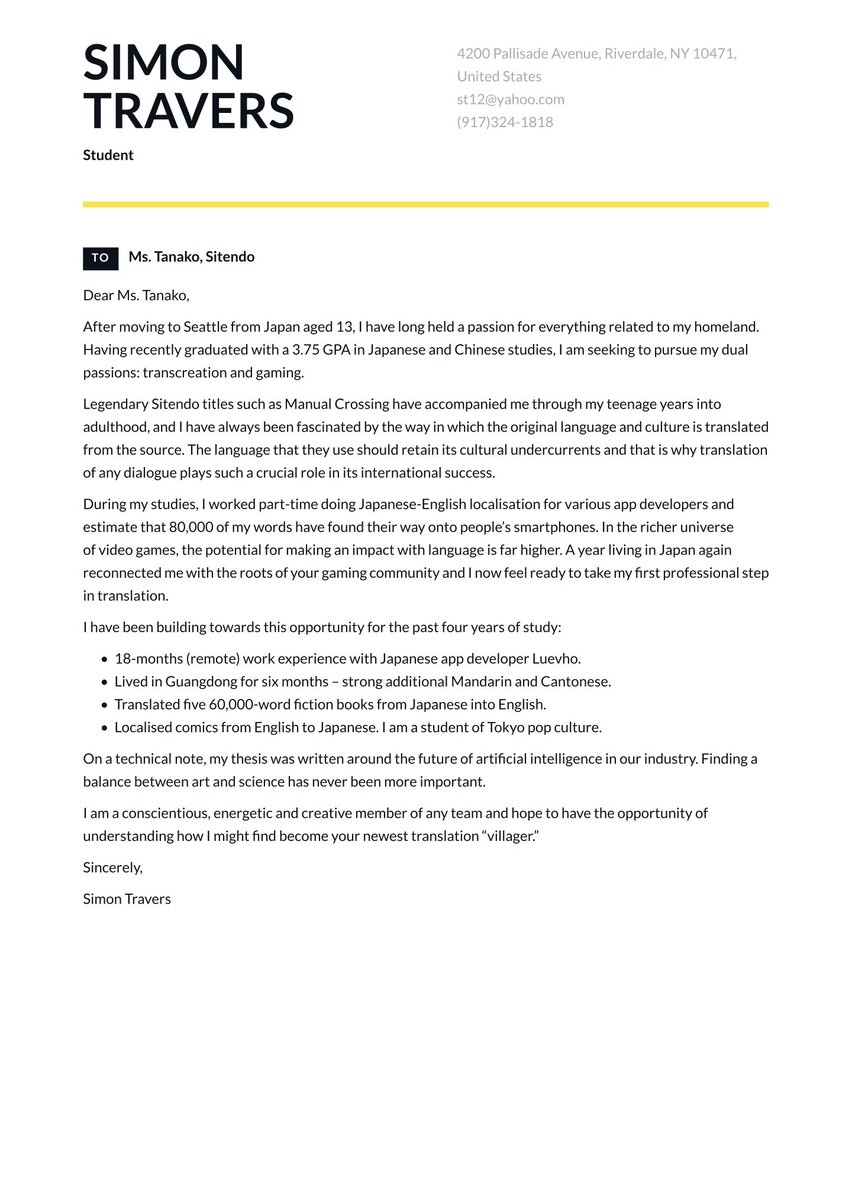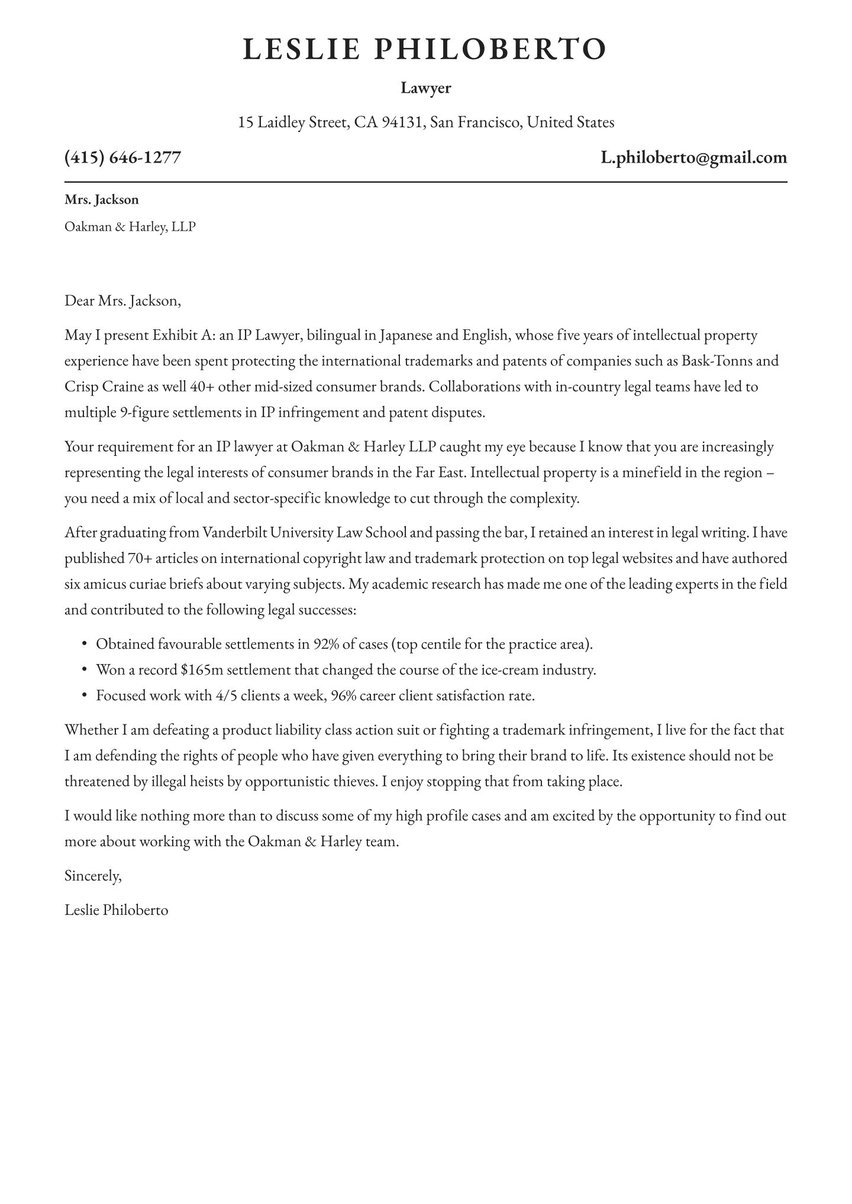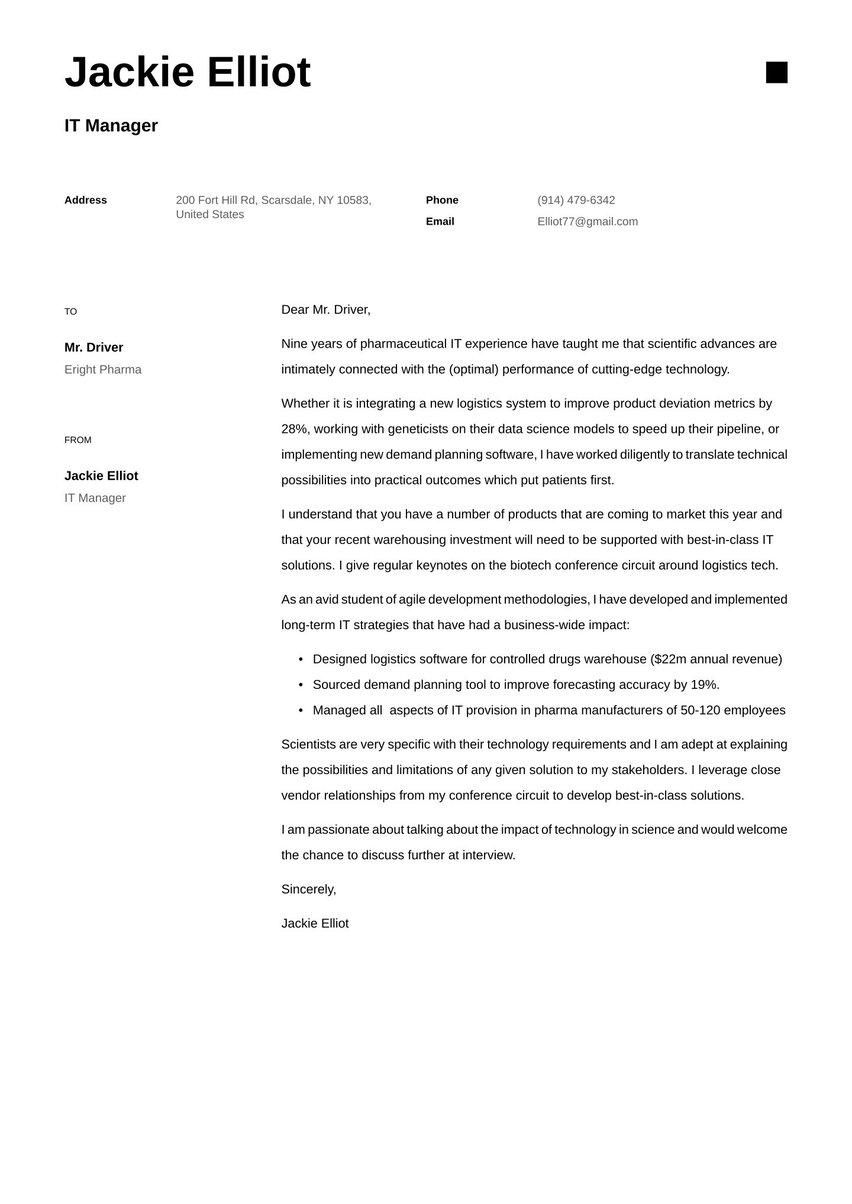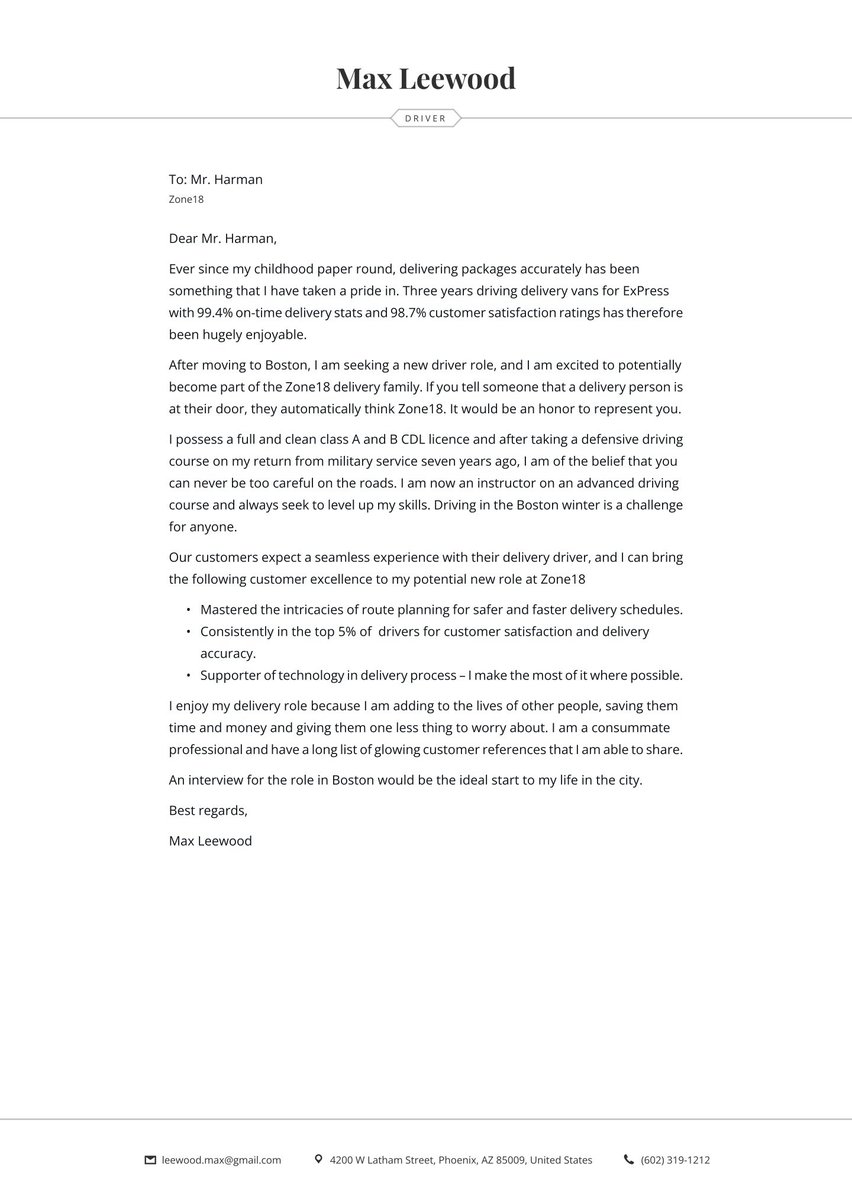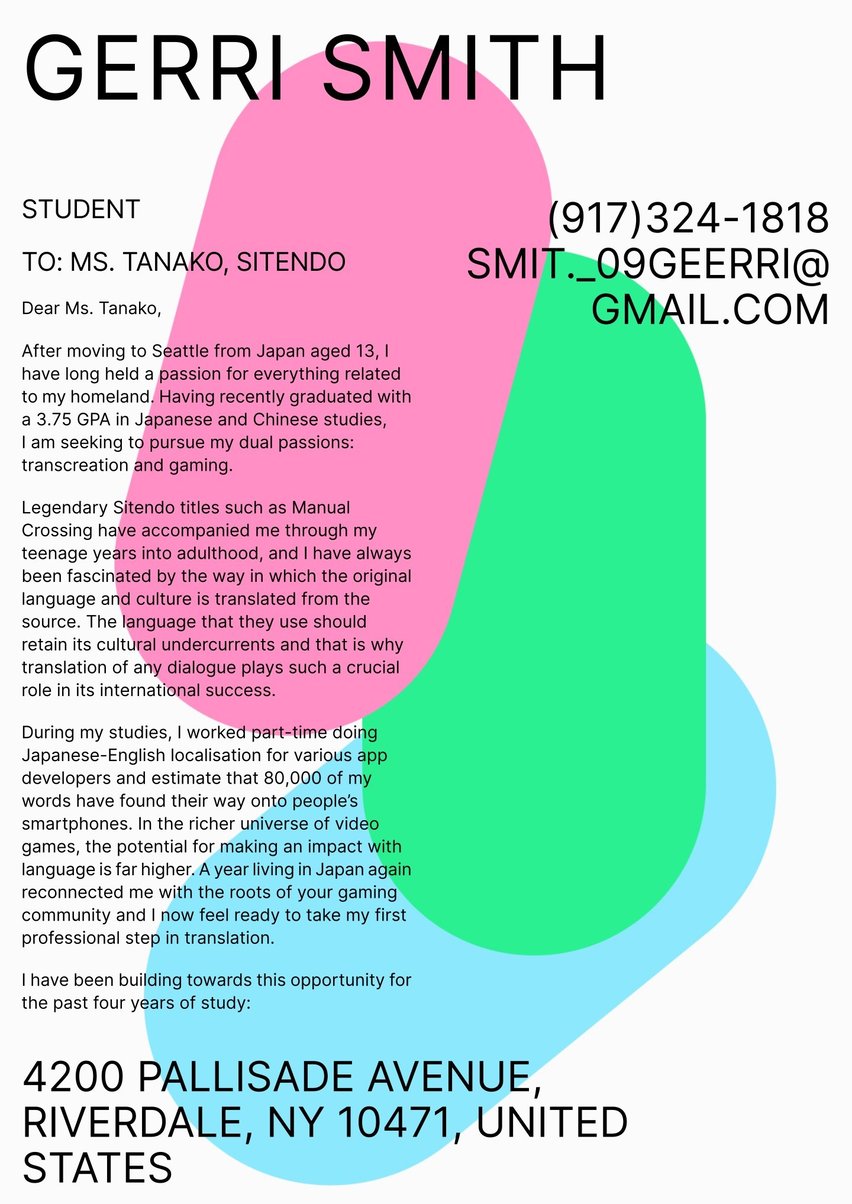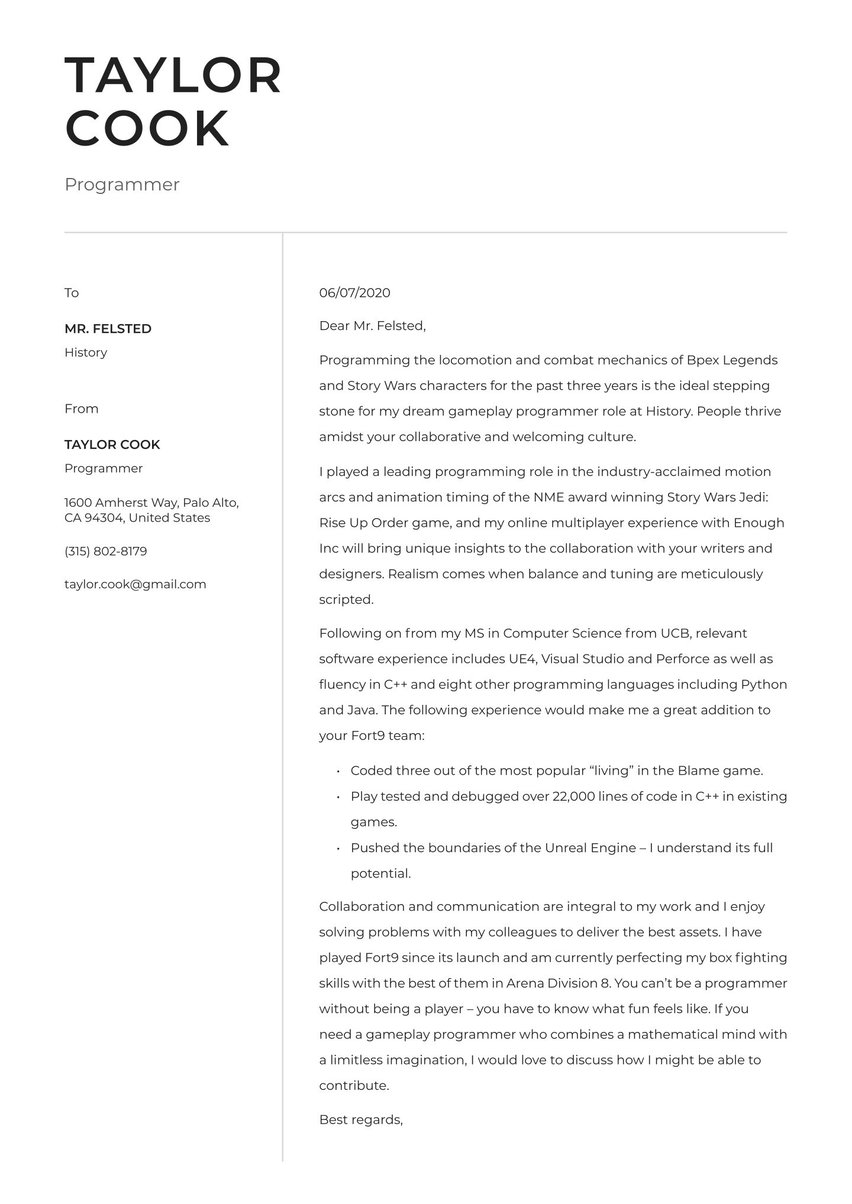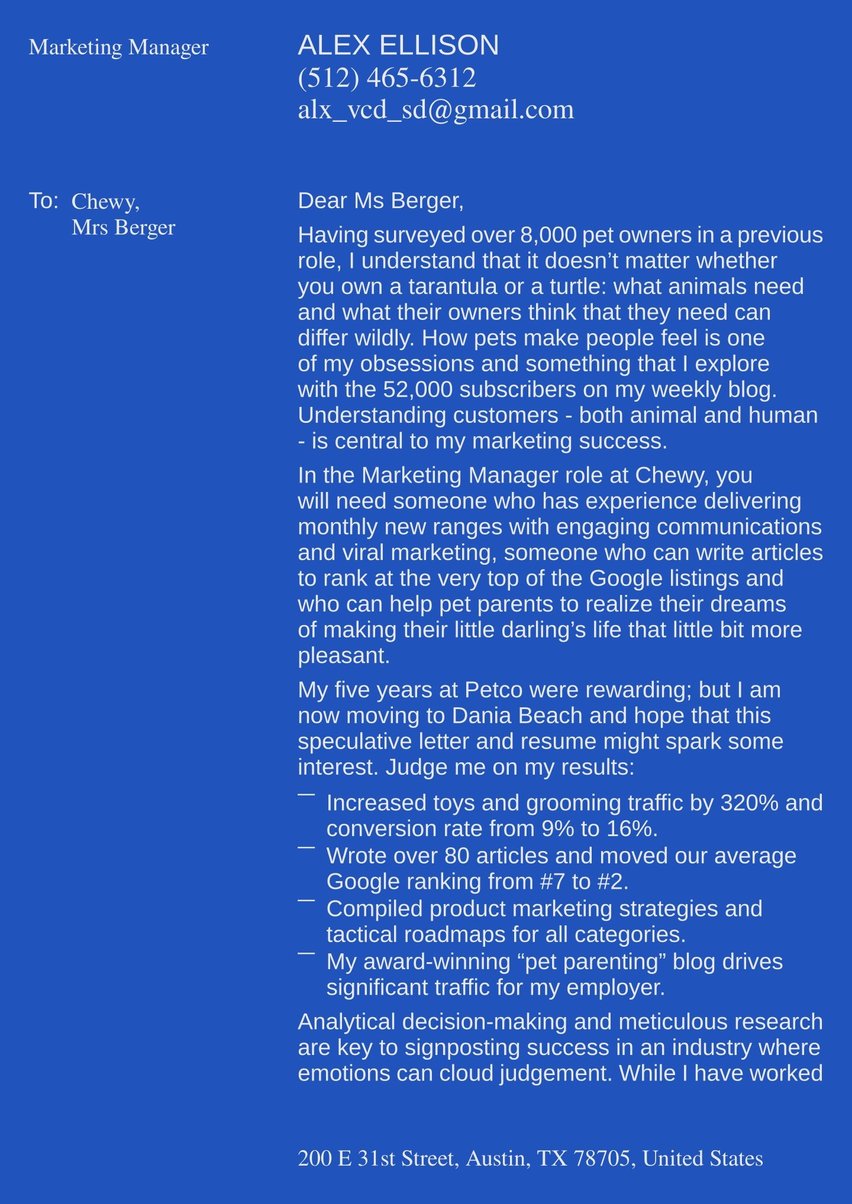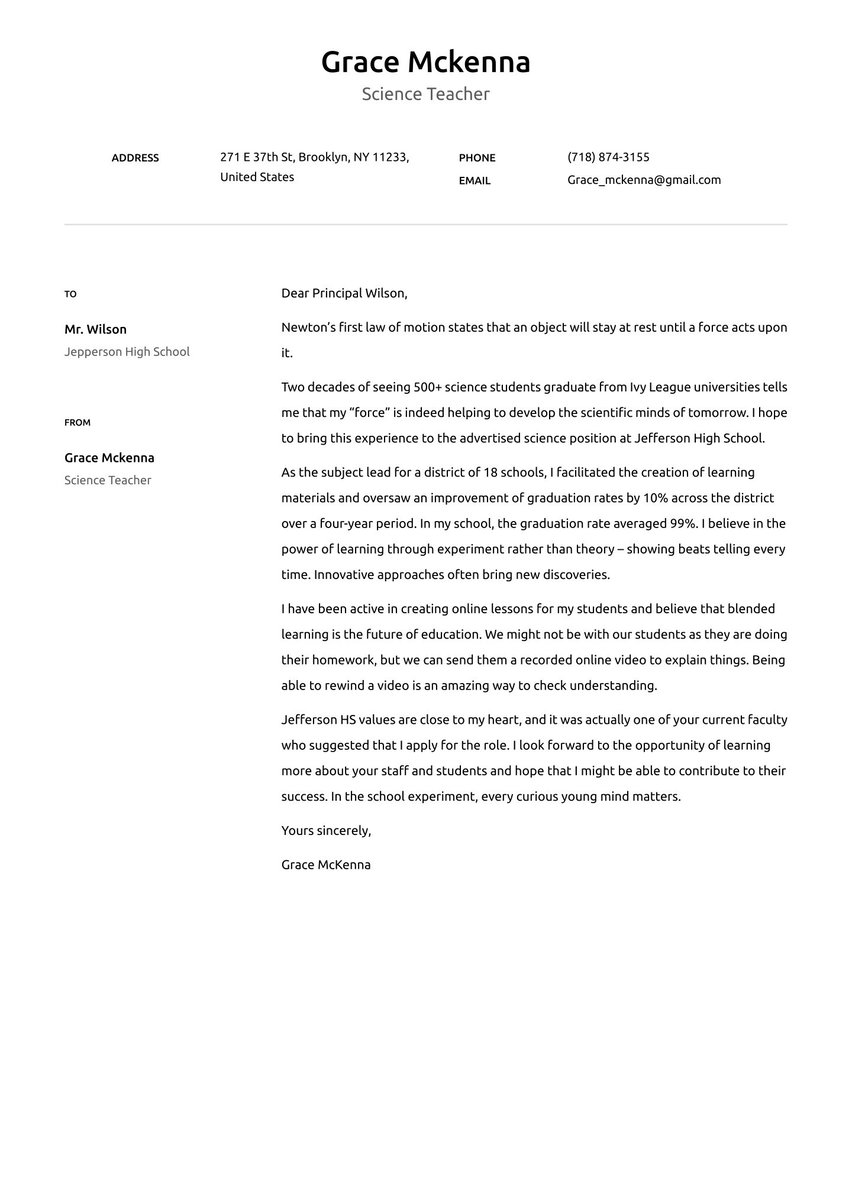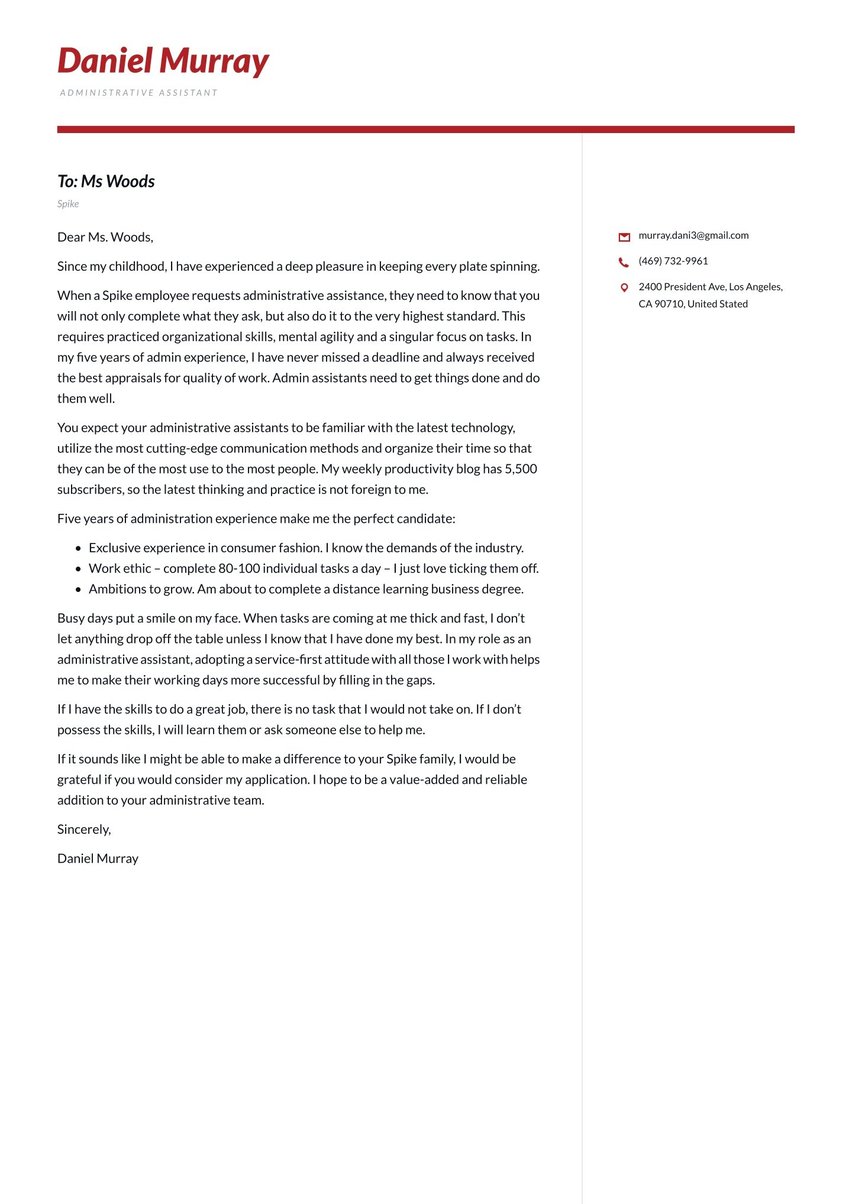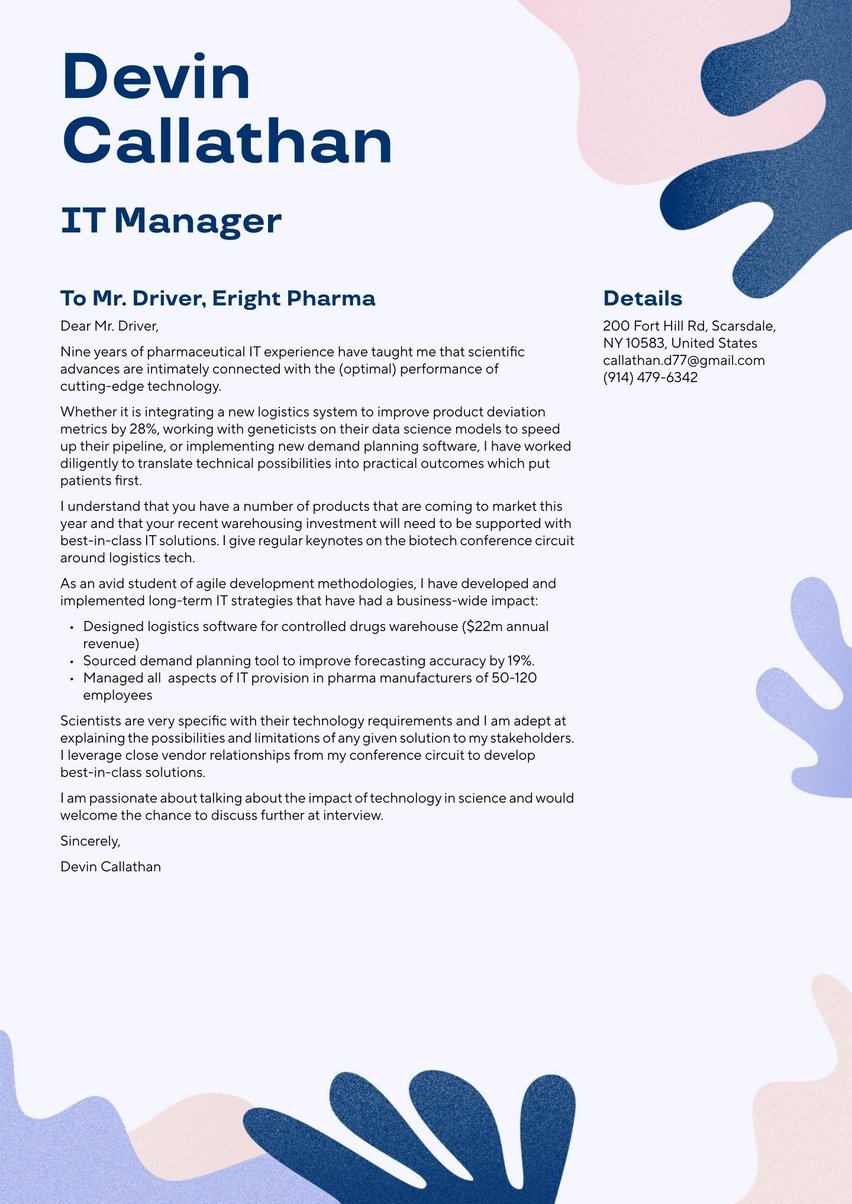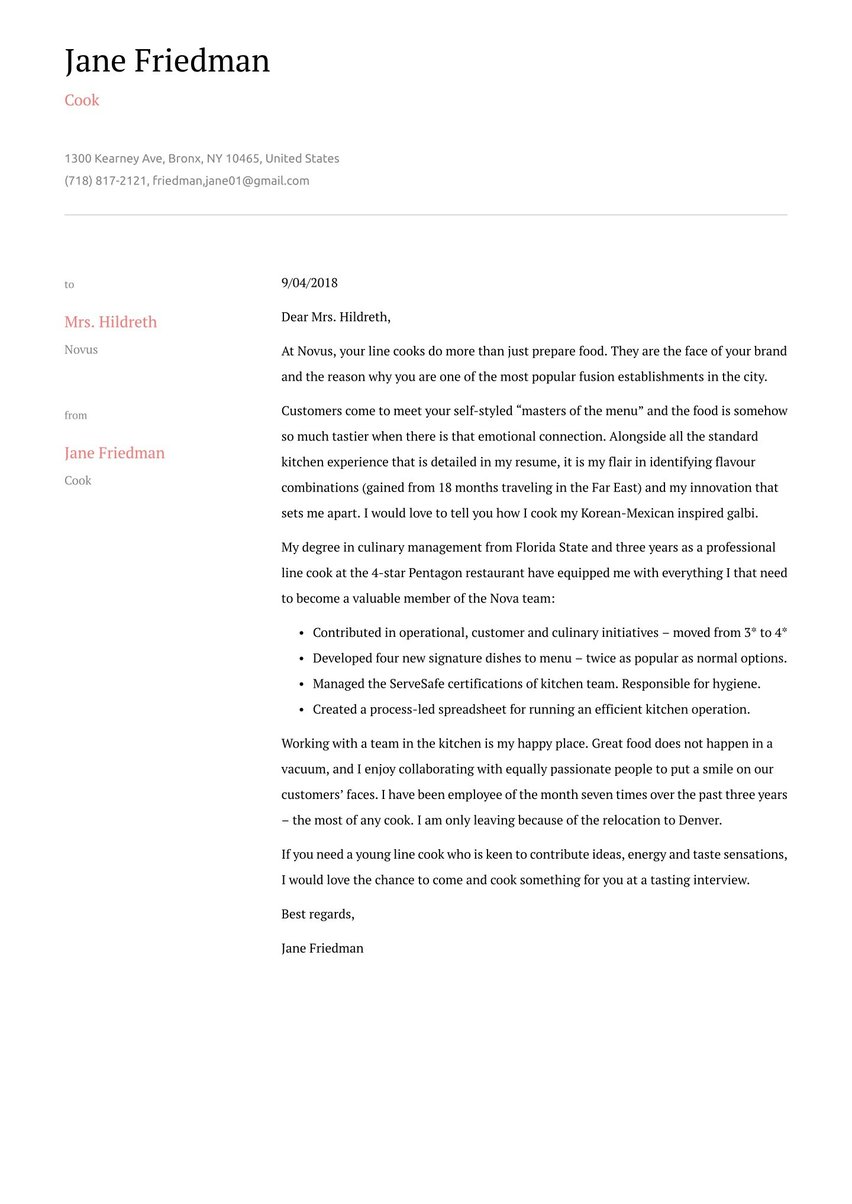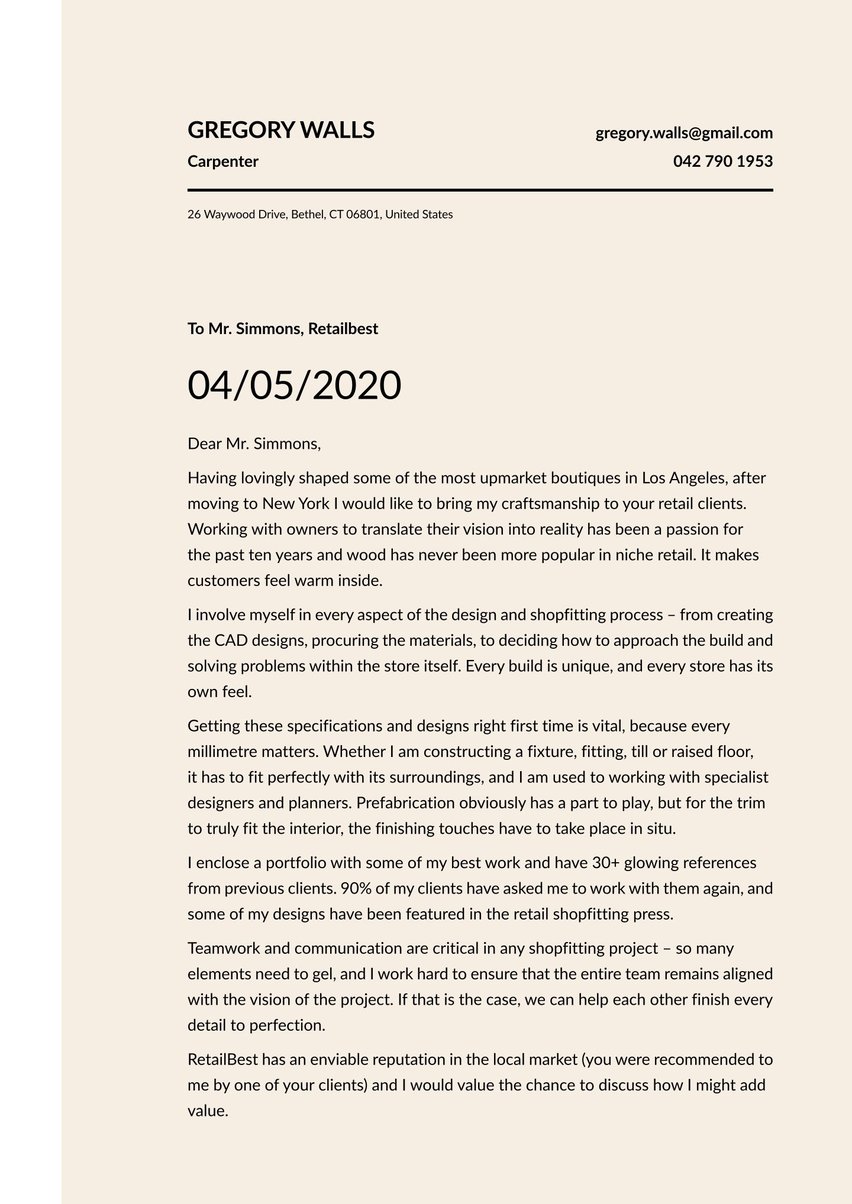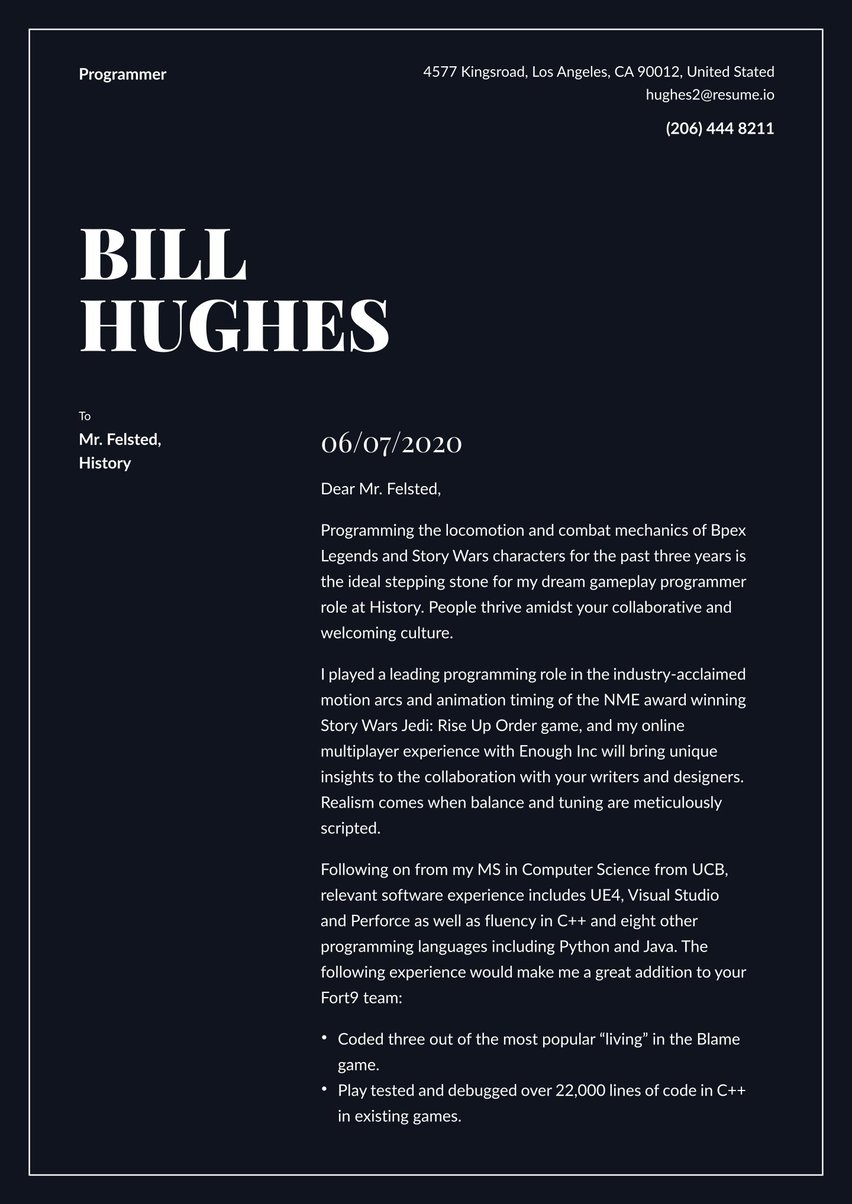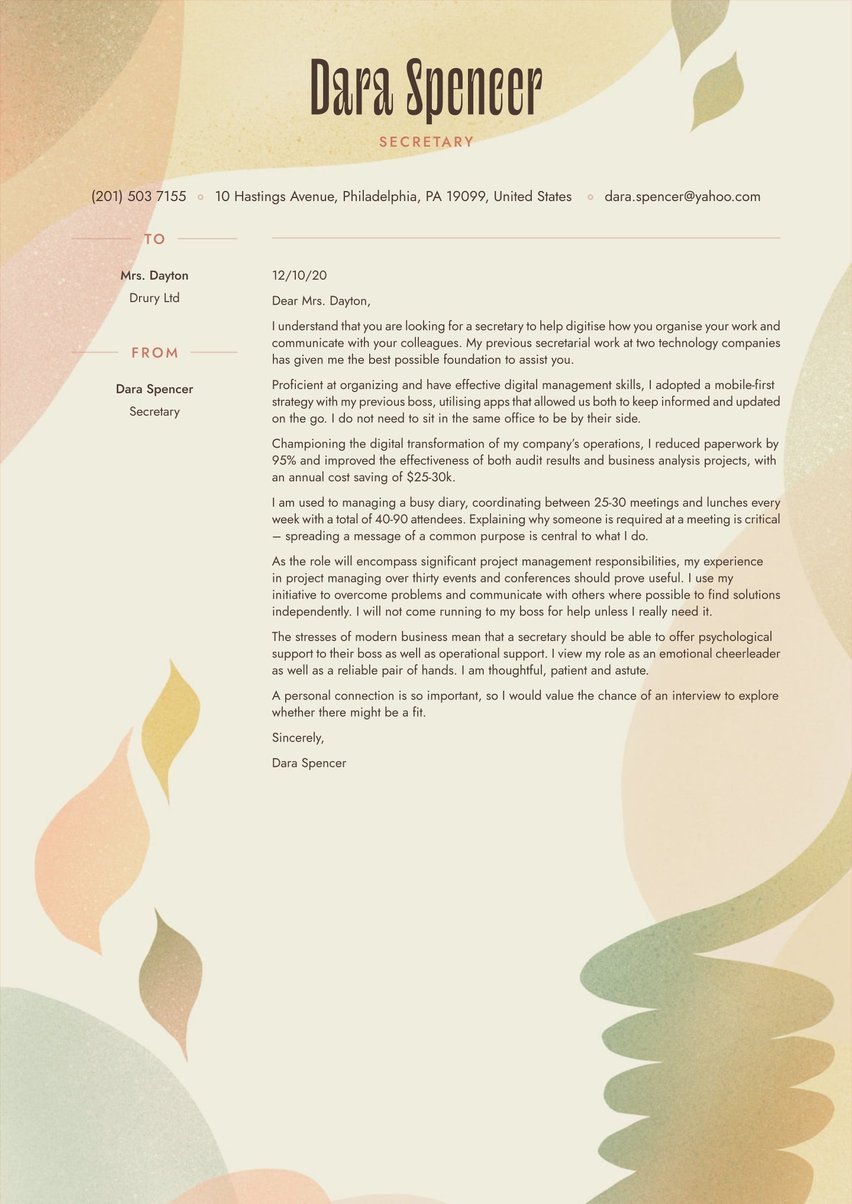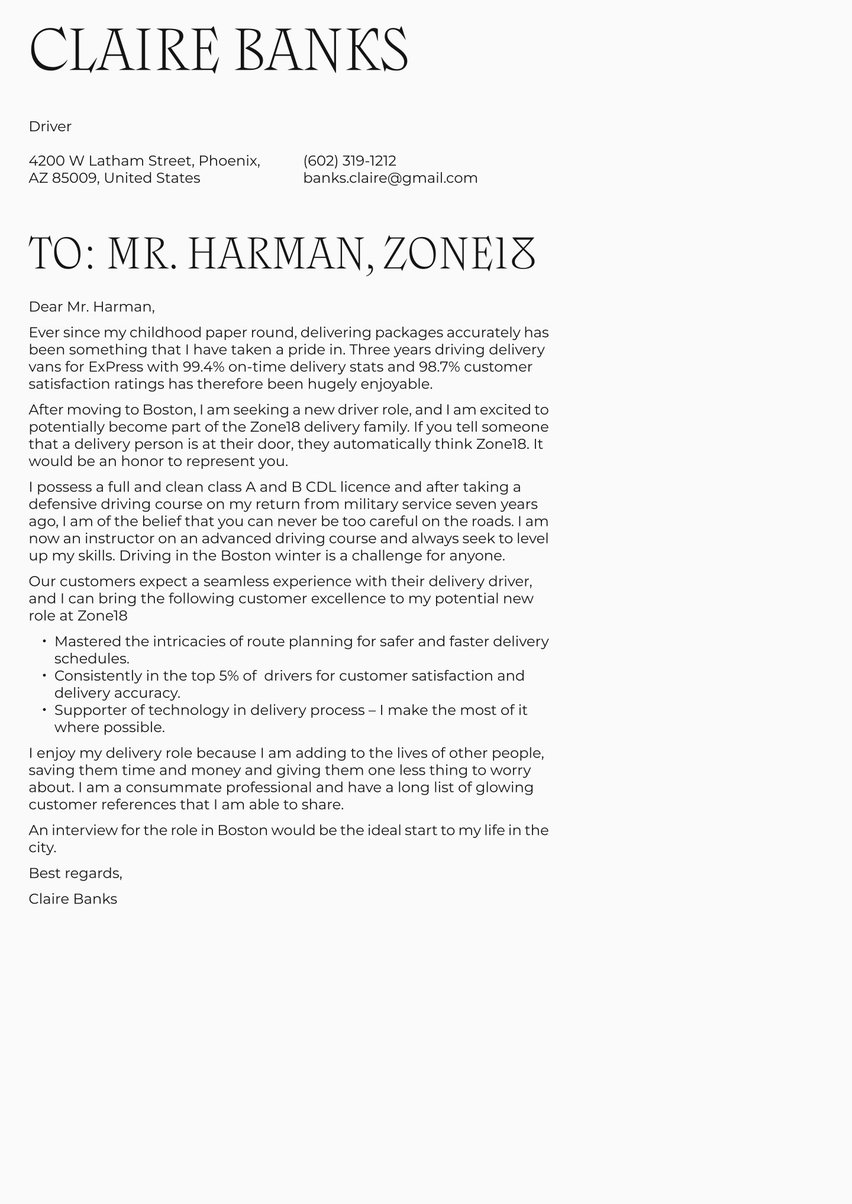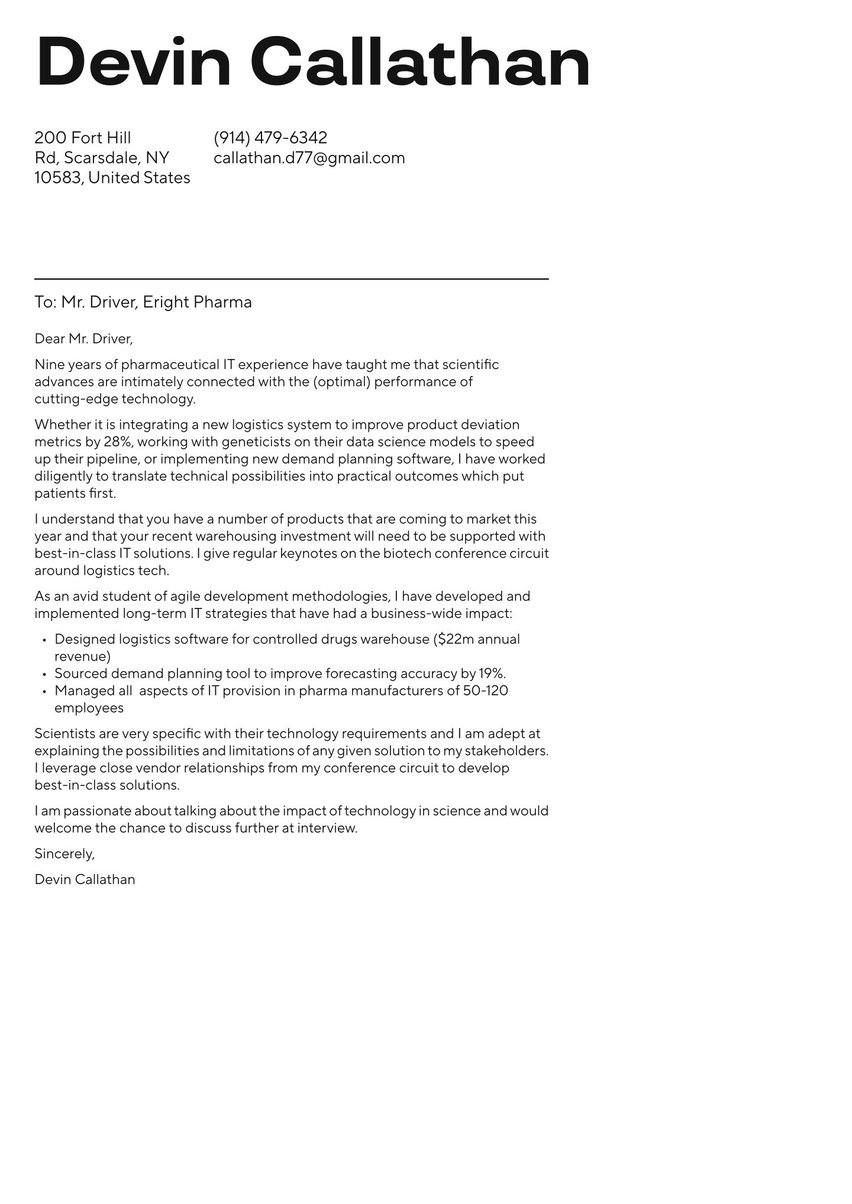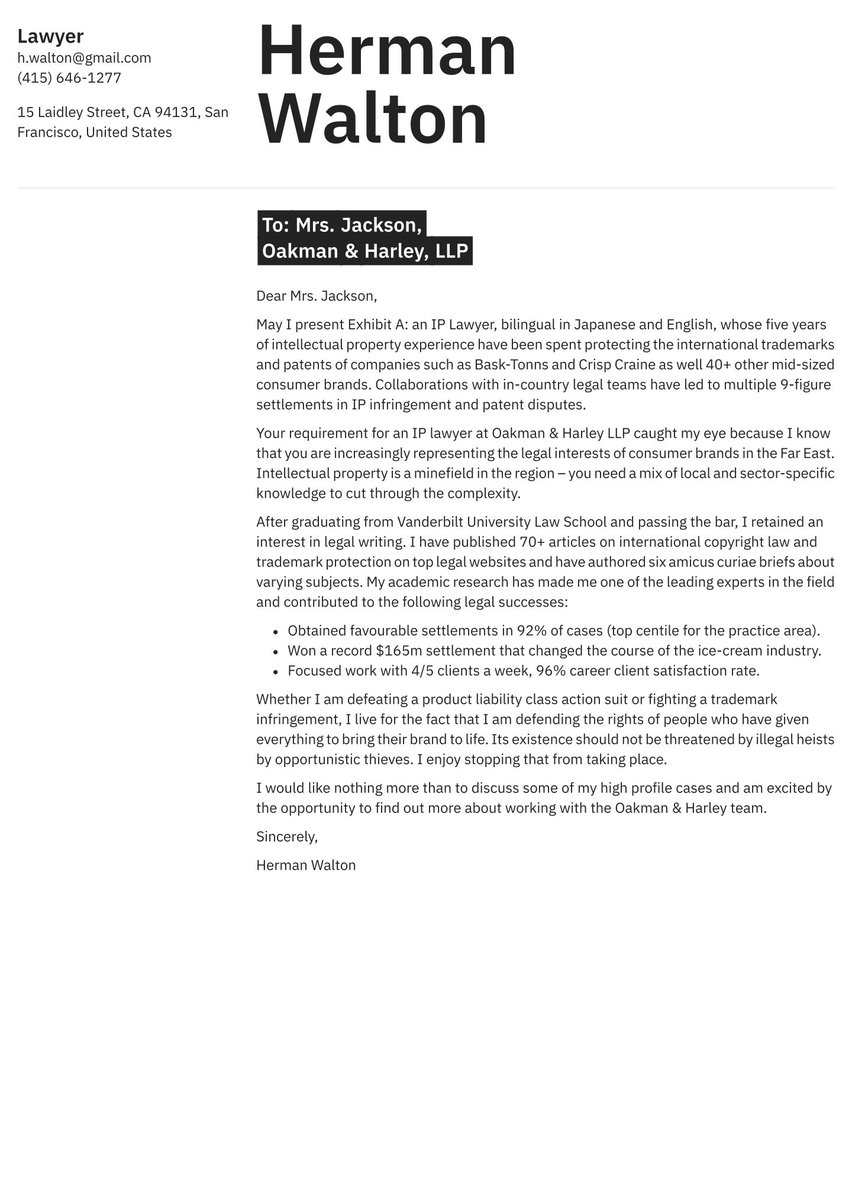To design a great account manager cover letter, you need to understand how the job is perceived by employers and recruiters. Understanding insider standards and decision-maker psychology is key to writing a convincing pitch … a pitch that leads to an amazing job.
There are a few types of companies that need your business once and don’t expect to see you again soon — for example, if you just bought a new house, you probably won’t be back next month to buy another one. But the majority of businesses rely on customer retention for repeat business, and this is where account managers play a vital role.
Account managers are responsible for a portfolio of customers that a company needs to retain so they don’t take their business elsewhere. Customer acquisition does little good if companies don’t hold onto their customers.
So an account manager gets to know these clients and their needs, sells them goods and services, stays in contact with them, makes sure they’re happy with the service they’re getting, resolves any problems they’re having, and ideally upsells them on new products.
According to Glassdoor, account managers earn average base pay of $58,652 a year. According to Payscale, they earn $55,956 a year, with potential bonuses of $4,894, commissions of $11,861 and profit sharing of $2,528. The U.S. Bureau of Labor Statistics, normally a reliable provider of job info, does not track account managers separately.
If this is your field, you know the importance of being a “people person” — likeable, attentive, helpful — and also of having skills in persuasion and psychology. All of these qualities will serve you well in writing the cover letter you need to find a job as an account manager.
Resume.io, a leading provider of occupation-specific We’ve produced an extensive collection of occupation-specific cover letter examples, as well as professional guidance on how to prepare them. We also offer resume writing guides and examples, informative blogs and field-tested templates to help you create both job application documents.
Now we’d like to address the crucial second part of any job application, the cover letter.
What we’ll talk about in this guide, backed by a corresponding account manager cover letter example:
- Why an account manager looking for employment needs a cover letter
- The proper structure and components of an account manager cover letter
- Optimizing the impact of each cover letter section: header, greeting, introduction, body and closing
- Tips to designing a great-looking cover letter
- How to get “inside the mind” of the person you’re writing to
- Mistakes you can’t afford to make
Why an account manager needs a cover letter
The lazy way to apply for a job is just to email your resume to 50 employers and sit back and wait for the phone to start ringing. Find a comfortable chair, because you’ll be sitting a long time.
As an account manager, you may become aware of a new set of products offered by your company that would be perfect for one of your clients. So would you just send your customer a blank email with a price list attached?
Obviously not! Hopefully, you would compose a thoughtful email addressing your contact by name, opening with a friendly greeting, introducing these new products, addressing how they would help meet your client’s needs, and perhaps proposing a follow-up call or meeting to discuss the matter further.
This is the idea of a cover letter — it’s a professional, friendly, appropriate way of reaching out to someone else with a business proposal.
The purpose of a cover letter is to highlight the experience, skills and qualifications that would make you a great hire — making the case in a personal way that’s beyond the reach of a resume alone. The goal of a cover letter is to increase your chances of being hired.
Although a small minority of employers prefer to be sent a resume only, a cover letter is generally considered an essential part of a job application. So if you don’t include one, you’ll face an uphill battle. Unless you’re specifically asked not to, always include a cover letter with a resume.
Best format for an account manager cover letter
The traditional cover letter structure is straightforward, functional and little disputed. Ignore it at your peril. In most cases, a cover letter should be one page only, a maximum of 400 words, and this is how it should be structured:
Let’s look at which each of these components entails.
Dear Ms. Frampton,
Having represented two leading FMCG brands as an account manager in both retail and wholesale channels, the role at Quench Beverages would be an ideal next move.
As you seek to increase your share of the retail market, my contacts, operational insights and commercial acumen will put you in the best position to win shelf space. In my national account manager role at Jolly Wines I was working with 4 out of the top 5 retailers and I will bring an intimate understanding of their pricing, merchandising and supply requirements.
I am a strong negotiator and always seek to understand how to best meet a retailer’s strategic objectives. My promotional deals at HomeMart were consistently top of their performance tables, delivering +102% YOY sales and driving category participation and footfall. This led to increasing the range by 35% and becoming their leading supplier. Close relationships with buyers allowed me to grow business with every customer last year.
I have worked with cross-functional teams, delivering cost savings, marketing rebrands and logistics improvements. An account manager sits in the middle of a complicated web and has to pull the right strings at the right time to ensure continuous improvement. I helped Jolly to win Supplier of the Year to Kline Winestore in 2017 – they could become a strategic partner for Quench Beverages. I can see your products on their shelves already.
I am currently investing in an MBA as I have a medium-term ambition to become a Sales Director. As you have a flat account management structure, I hope to be able to prove my strategic worth and maybe make a case for a more extensive role. Looking at your current market coverage, there is the potential for a 3-4x increase over the next couple of years.
I have composed a presentation around how I would approach growing the Quench brand in the retail sector and would be delighted to take you through my thoughts at interview.
Sincerely,
Deanna Linder
Looking for more ideas and inspiration? Check out these related cover letter guides and examples in the Sales category:
Cover letter header
A cover letter header, also known as a letterhead, is the element at the top of the letter that contains your name, occupation, address, phone number and email. Sometimes it contains a couple of other items, like a LinkedIn URL, and sometimes the mailing address is omitted.
The header gives employers all the info they need to contact you, but it also serves as a design element that makes your letter more pleasing to the eye. Below the header, there’s virtually no room for creative design, but the header might contain some color, an innovative use of typography and layout, and an appropriate amount of white space. All of this can and should make your letter look better.
Take a look at the free cover letter templates offered by resume.io to get an idea of some of the header options available. If you find one you like, download it and use it, and leave your header worries behind.
Align document styles
Your resume and cover letter should have a matching design, with the same fonts and formatting styles, and the headers should be very similar if not identical. If you use a red stripe in your resume header, don’t change the color to green in your cover letter.
Matching styles make it obvious that these two documents came from the same person and were designed to be paired together.
On the other hand, mismatched fonts, styles and colors suggest a scatter-brained approach with little focus and little understanding of the importance of cohesive design.
Goal of the cover letter header: Distinguish yourself from other job applicants by attracting visual attention and displaying your regard for detail and professionalism.
Cover letter greeting / salutation
The cover letter greeting is a key part of your professional pitch. Being focused is vital. If you wanted to become one of the X-men, you could try writing a letter that starts, “Dear X-Men Hiring Department.” But you’d probably be better off singling out an actual decision maker: “Dear Professor Xavier.”
One of the most common errors made by writers of cover letters is that they never go to the trouble of finding out to whom they should address the letter. Names are important, and people get a little psychological boost out of seeing their own names. They’re also more likely to respond to a personally addressed letter.
Job listings often don’t name the person who is responsible for hiring, but with a little legwork (like a phone call, if necessary), you can usually find out. It shows good initiative on your part — like the kind of attention to detail that a company would be looking for in an account manager.
Some people find the greeting “Dear” a little old-fashioned, but it’s the safest option there is, followed by a “Mr.,” a “Ms.” or a “Dr.” and then a last name. Or if you happen to know the person you’re writing to, using his or her first name may also be perfectly acceptable.
Goal of the cover letter greeting: Start off on a professional note while making a direct personal connection with the hiring manager.
Dear Ms. Frampton,
Cover letter introduction
The cover letter introduction is your hook. It draws people in and engages them to read the rest. Put some thought into your opening sentence, and try to make it impossible for the recipient to stop reading. Your introduction should identify the job you’re seeking and begin to make a case for why you’re the perfect candidate.
Use bold, sincere, original language. Do not open with “I am writing this letter …” — the recipient already knows you’re writing this letter. Some people open with “Hello, my name is …” even though their name appears prominently at the very top and bottom of the letter. Use this precious space to say something unexpected that gets the reader’s attention.
It’s important to find the right tone of voice from the beginning. Study the company you’re targeting and see what kind of language it uses to address the public on its website or in other communications. Whether it’s highly formal or super-casual, try to write in a style that more or less matches the company’s style.
Beware of sounding arrogant (“I know I’m the best possible candidate for this job”), but don’t be too mousy either (“I was wondering if you would be willing to consider me for this job despite my lack of experience”). Strike a note that’s positive but not overconfident, friendly but not too familiar.
Goal of the cover letter introduction: Captivate recruiters with a preview of your qualifications that motivates them to read more.
Having represented two leading FMCG brands as an account manager in both retail and wholesale channels, the role at Quench Beverages would be an ideal next move.
Cover letter body
The central paragraphs of your cover letter are the “meat and potatoes” of your pitch, the place where you have to make a convincing case that you’re the right person for the job.
If you have years of experience as a successful account manager, then start with that. If you have related experience as a sales rep or something similar, talk about how this has prepared you for the next challenge. And if you’re still in college and your work experience is nil, then lead with your educational credentials and explain why you feel called to become an account manager.
In reviewing your work experience, be specific, using facts and figures wherever possible. Don’t just say where you worked or for how long, but talk about your on-the-job accomplishments. Tell a story about a difficult challenge you faced in the past, what action you took and how you achieved a result that satisfied everyone.
Try to say something that names the company you’re writing to, ideally with some knowledge you have about the challenges it faces in its field — and how your contribution could help acquire and retain customers, increase sales and grow revenue. At the very least, this will demonstrate that you aren’t mass-mailing an identical letter to multiple employers.
Goal of the cover letter body: Reinforce the connection between your previous accomplishments and potential future benefits to the hiring organization.
As you seek to increase your share of the retail market, my contacts, operational insights and commercial acumen will put you in the best position to win shelf space. In my national account manager role at Jolly Wines I was working with 4 out of the top 5 retailers and I will bring an intimate understanding of their pricing, merchandising and supply requirements.
I am a strong negotiator and always seek to understand how to best meet a retailer’s strategic objectives. My promotional deals at HomeMart were consistently top of their performance tables, delivering +102% YOY sales and driving category participation and footfall. This led to increasing the range by 35% and becoming their leading supplier. Close relationships with buyers allowed me to grow business with every customer last year.
I have worked with cross-functional teams, delivering cost savings, marketing rebrands and logistics improvements. An account manager sits in the middle of a complicated web and has to pull the right strings at the right time to ensure continuous improvement. I helped Jolly to win Supplier of the Year to Kline Winestore in 2017 – they could become a strategic partner for Quench Beverages. I can see your products on their shelves already.
I am currently investing in an MBA as I have a medium-term ambition to become a Sales Director. As you have a flat account management structure, I hope to be able to prove my strategic worth and maybe make a case for a more extensive role. Looking at your current market coverage, there is the potential for a 3-4x increase over the next couple of years.
Cover letter conclusion
Close your cover letter conclusion with a wrap-up, a thank you and some kind of call to action. Plant the thought that your correspondent should do something as a result of this letter. You might say that you are always reachable at the contact info provided, that you would welcome a phone call to continue the conversation, or that you would be delighted to come in for an interview.
In short, be a good salesperson! Many sales require multiple contacts, and the onus is on the salesperson to be the instigator of the next steps.
In many ways, your cover letter can be a demonstration to a potential employer that you’re good at your job. All the factors are in play here: personal outreach, a convincing pitch and a call to action to close the deal.
Aim of the cover letter closing: End on an upbeat, self-assured note with a call to action that ideally results in an interview.
I have composed a presentation around how I would approach growing the Quench brand in the retail sector and would be delighted to take you through my thoughts at interview.
Sincerely,
Deanna Linder
Sign-off
The simple word “Sincerely,” followed by a comma, a return and a full name is the time-honored way to close a business letter. Experiment with variants if you wish, but avoid any sign-off that sounds too casual or unusual.
Design tips for an account manager cover letter
Looks matter, so don’t overlook the importance of an eye-pleasing design for your cover letter. The basics are not complicated, but they are often overlooked.
Follow these rules to make sure your cover letter looks as good as it reads:
- Fonts: Use an easy-to-read font that doesn’t look strange in any way, so that readers focus on your content and not your typeface.
- Font size: Your font should be no larger than 12 points and no smaller than 10. Many people reduce their font size to make their letter fit onto one page, but the first step should be to reduce the word count.
- Align text left: Text should be flush left, not justified, to avoid a blocky look of wall-to-wall type.
- Margins: Leave room for a one-inch margin at the top, bottom and both sides of the page.
- Paragraphs: Leave a space between them, don’t indent them, and hold them to a reasonable length to avoid huge chunks of text.
- File format: If sending your cover letter electronically, save it as a PDF, which will preserve your formatting so it looks the same on any device.
- Use a template: A professionally designed cover letter template provides an error-free blueprint to work from.
Writing psychology: Think like the person who will read your cover letter
It’s vitally important to empathize with the recipient of your cover letter. View your cover letter through the eyes of the employer or recruiter. You may love red cars, but you’ll never sell one to someone who only buys black cars. In sales, what you like doesn’t matter — the customer is not looking to buy what you like.
When writing a cover letter, you may know exactly what you want to say. But is that what the hiring manager wants to hear?
Always remember that you are not trying to convince anyone that you deserve a job. Nor are you trying to explain to anyone what your needs are. You are writing about how you can help solve the employer’s needs, not yours.
Sales-oriented companies sometimes talk about “customer focus,” or even “customer obsession.” Apple does not sell iPhones by convincing customers that Apple needs more revenue. Apple sells iPhones by convincing customers that they need iPhones.
So while your cover letter is primarily about you, you need to adopt a state of mind while writing it that is wholly focused on the person receiving it.
Put yourself in the shoes of the person you’re writing to. If you received this letter, would you want to meet the person who wrote it, and perhaps work with that person for years to come?
Have you found the right tone, compelling and readable, but never arrogant or presumptive? Have you sounded the wrong notes anywhere, and is there anything you need to delete?
Have you highlighted all of your most impressive experiences and relevant job skills? Or have you veered into extraneous tangents about your hobbies or anything else that doesn’t explain what makes you a good account manager?
Have you used fresh, original language, or resorted to cliché-ridden fluff that sounds fancy but says nothing?
Your cover letter is a unique opportunity to showcase your personality, drive and passion — so make every effort to come alive. Write the sales letter of your life.
Cover letter mistakes you can’t afford to make
Here are some errors commonly found in cover letters that you need to strenuously avoid:
- Typos, misspellings and bad grammar: You just have to write one page, but it has to be perfect. If English is not your forte, find an editor.
- Clichés and lazy writing: If you’re a “team player” and a “self-starter” who “thinks outside the box,” keep this to yourself. When writing a cover letter, the first thought that comes to your mind is probably a cliché. Try to write something that you’ve never read anywhere else before.
- Mass mailings: No cover letter is a one-size-fits-all solution. Write a different letter to each employer.
- Design fails: If your letter looks terrible at a glance (weird font, tiny text, no room for margins, no white space), the recipient may not even bother to read it.
Key takeaways for an account manager cover letter
- Account managers retain customers by using their gifts of personality and persuasion.
- You should tap these same skills to hook and land your most important customer, your next employer.
- Your cover letter should be properly structured and must include all the necessary components.
- Your cover letter must be attractively designed so it looks good at a glance.
- Put yourself in the shoes of the person you’re writing to and make the letter about the employer’s needs, not yours.
For best results, use a professionally designed cover letter template where all the formatting is done for you. You still have to write the letter — although Resume.io's builder tool makes that task much easier — but you’ll be building on a field-tested foundation that’s been proven to succeed.


